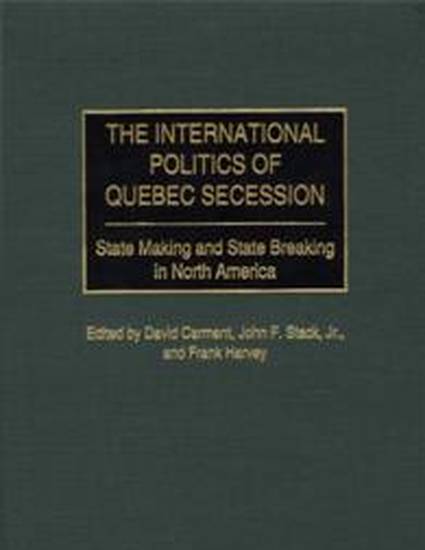
Contribution to Book
Quebec Secession In Comparative Perspective
THE INTERNATIONAL POLITICS OF QUEBEC SECESSION : STATE MAKING AND STATE BREAKING IN NORTH AMERICA
(2001)
Abstract
As this chapter is being written, it is not possible to envision that an end to Canada's great political drama is in sight. The costs of ongoing political ambiguity and uncertainty appear to be continuing controversy and debate in two critical areas. The first rests on the extent to which Canadians are willing to accept Quebec as a unique political entity in its midst. The second is the corresponding demise of Canada's overarching federal principles-Canada's statehood (Stairs and Doran this volume). Regardless of how Canada's future is played out, it is a critical time to assess the broader, overlooked significance of Quebec secession: the question of international relations in a post-Cold War international system. Central to such an assessment is the extent to which Canada's situation represents a unique case or a prototype for the likely breakup of the essential units of world politics-nation -states.
Keywords
- Ethnic relations,
- Canada,
- 1945,
- Foreign relations,
- History,
- Autonomy and independence movements,
- Secession,
- Québec (Province),
- World politics,
- Forecasting
Disciplines
Publication Date
2001
Editor
David Carment, John F. Stack, Jr., and Frank Harvey
Publisher
Praeger
ISBN
9780275970512
Citation Information
John F. Stack, Jr. and Lui Hebron, Quebec Secession In Comparative Perspective, in THE INTERNATIONAL POLITICS OF QUEBEC SECESSION : STATE MAKING AND STATE BREAKING IN NORTH AMERICA, (David Carment, John F. Stack, Jr., and Frank Harvey, eds., Praeger, Westport, CT, 2001).
